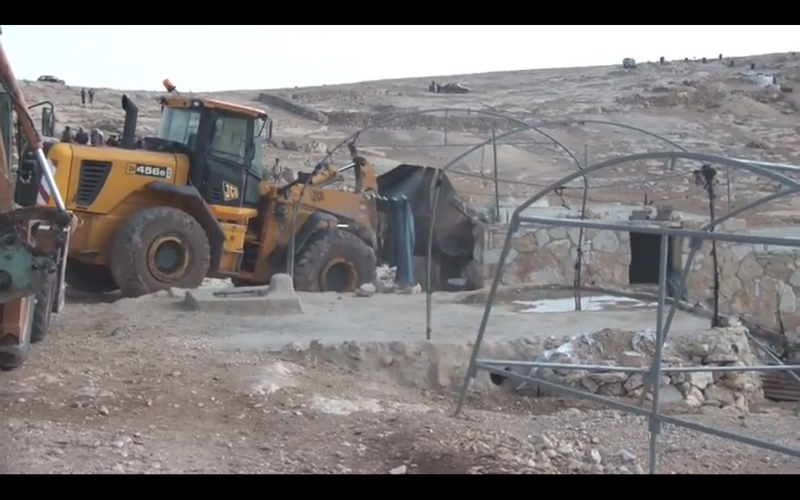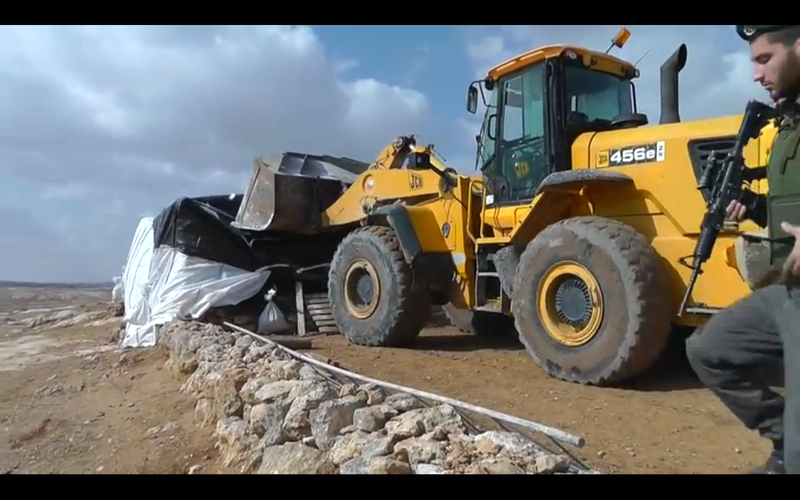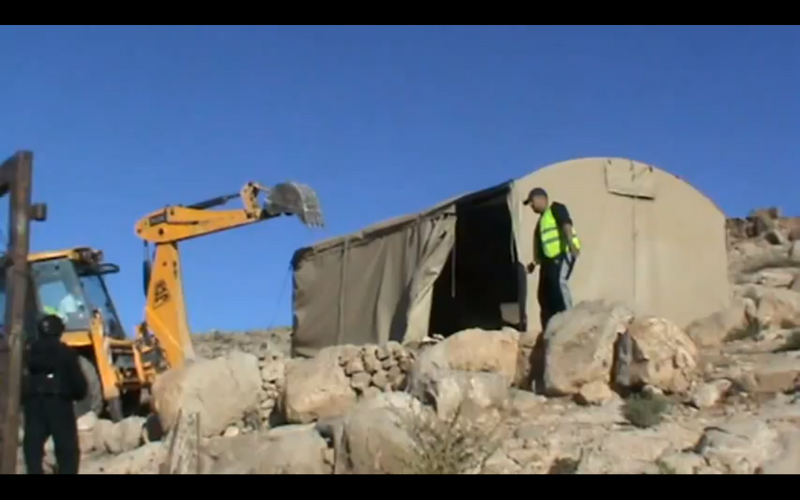Activism and BDS Beat 10 December 2011
The United Nations Committee on Economic, Social and Cultural Rights (CESCR) discussed Israel’s State Report on its compliance with the International Covenant on Economic, Social and Cultural Rights at its recent session (14 November to 2 December 2011). The Israeli report dates from November 2008. Several international, Palestinian and Israeli human rights organizations provided additional information to CESCR. All documents are published on the website of the Office of the High Commissioner for Human Rights.
Based on the available information, CESCR formulated its “principal subjects of concern” and recommendations in the concluding observations. The document can be found in the last column of the table. Three out of the 35 concerns are about Israel’s destruction of Palestinian property.
In paragraph 26, CESCR expresses its deep concern about home demolitions and forced evictions in the West Bank, including East Jerusalem, by Israeli authorities, military personnel and settlers. It calls on Israel to stop home demolitions forthwith. In paragraph 27, CESCR recommends to Israel that it officially regulate the unrecognized villages and cease the demolition of buildings in those villages.
Furthermore, CESCR is concerned about the continuing destruction of the water infrastructure in Gaza and the West Bank, including in the Jordan Valley (paragraph 29).
JCB machines used as tool of Israeli army in demolition of Palestinian property
While CESCR was discussing the human rights situation, Israeli forces used machines produced by British manufacturer JCB in the village of Umm Fagarah on 24 November. The company’s headquarters is based in Rochester in the United Kingdom. It has factories in the UK, Germany, Brazil, China, India and North America.
JCB equipment was used to demolish two homes, a mosque and a barn in Umm Fagarah. The village is located in the South Hebron Hills in the occupied West Bank. The Electronic Intifada’s Ali Abunimah reported on the event.

Video screenshot shows JCB machine demolishing Palestinian property in occupied Umm Fagarah on 24 November.

Video screenshot shows JCB equipment being used to demolish Palestinian property in occupied Umm Fagarah on 24 November.
On 20 June, JCB machines were seen in action destroying the village of Bir el-Eid in the South Hebron Hills:
During the course of one morning the [Israeli] forces demolished six residential structures and tents, and one toilet structure. The forces also uprooted fruit and vegetable patches, and cut the wires of the electrical system that was installed by the Comet-ME organization, which builds wind-turbines and solar panels to provide energy to villages that Israel did not connect to a grid. According to residents, the soldiers told them that they do not deserve to have electricity. In addition, the soldiers also damaged a water tank and sacks of animal food. (Dolev Rahat for Rabbis for Human Rights)

Video screenshot shows JCB machines used in demolition at Bir al-Eid village in the occupied West Bank.
In “Putting occupation’s profiteers in the dock”, David Cronin reviews the transcript of the Russell Tribunal session on corporate complicity in Israel’s occupation held in November 2010 in London.
Caterpillar is probably the first name that springs to mind for Western human rights activists when the subject of corporate crimes in Palestine is broached. We remember, in particular, the courage of American peace activist Rachel Corrie, who was crushed to death by an Israeli soldier driving a Caterpillar bulldozer in 2003. Corrie was trying to save a home from demolition in Rafah, in the southern Gaza Strip. This book alerts us to how vehicles made by that firm (and exported as US military aid to Israel) are still enabling war crimes.
The aforementioned Caterpillar, as well as other suppliers of heavy vehicles to the Israeli military (such as Volvo and Daewoo), would be well-advised to read the contribution of Hocine Ouazraf, a political scientist based in Belgium. It makes clear that — under the Fourth Geneva Convention — civilian property can only be damaged by an occupying power when doing so is “rendered absolutely necessary by military operations”, he writes.
JCB can be added to the list and should be held to account by the Boycott, Divestment and Sanctions movement.






Comments
Cat sells JCB equipment
Permalink Kevin Neish replied on
I once worked for Finning Tractor, the largest Caterpillar dealer in the World, and I know that Finning sells JCB equipment and so they likely supplied the JCB dozers used to destroy the Palestinian homes noted in the article. The Finning UK website documents that they sell JCB equipment.
http://www.machinerytrader.com...